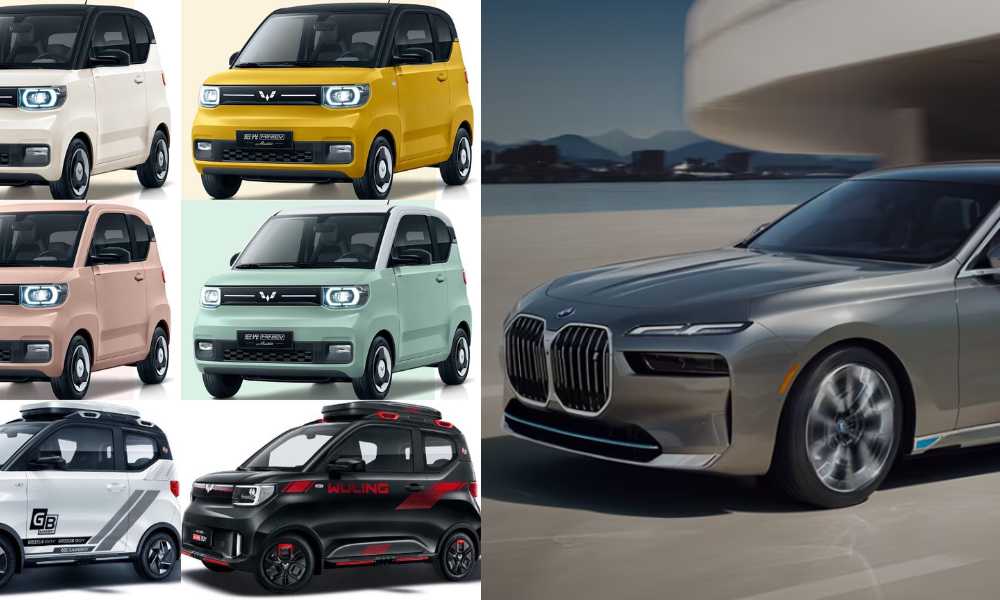The electric vehicle (EV) market in the Philippines is experiencing significant growth and transformation.
This article will explore the latest trends and developments in the EV sector, highlighting popular brands and units, government policies, infrastructure advancements, and consumer perceptions.
Market Growth and Popularity
The electric vehicle market in the Philippines is on an upward trajectory. According to the Electric Vehicle Association of the Philippines (EVAP), the number of electric vehicles is expected to increase to 6.6 million by 2030, with 3.6 million electric motorcycles and 300,000 private electric cars.
This growth is driven by increasing environmental awareness, government incentives, and advancements in EV technology.
Popular Electric Vehicle Brands and Models
Several automakers are leading the charge in the Philippine EV market, offering a diverse range of electric and hybrid vehicles. Here are some of the most popular brands and models:
- BYD: Known for models like the Atto 3 and Dolphin, BYD is expanding its presence with plans to open 22 dealerships nationwide by the end of 2024.
- MG: MG showcased over 12 models at the Manila International Auto Show (MIAS) 2024, including the ZS EV, MG4 XPOWER, and Cyberster.
- Kia: The Kia EV6, a flagship electric vehicle, is gaining popularity for its performance and design.
- Hyundai: The Ioniq 5 and Ioniq 6 are notable models, with the Ioniq 5 being highlighted for its innovative features and performance.
- Nissan: The Nissan Kicks e-POWER is a popular choice among Filipino consumers, known for its efficiency and affordability.
Affordable and Luxury Options
The Philippine EV market offers a range of options from affordable to luxury models.
The Wuling Macaron, priced at ₱663,000, is the cheapest electric car available, while the BMW i7, retailing at ₱10.39 million, represents the high-end segment.

Government Policies and Support
Incentives and Tariff Reductions
The Philippine government is actively supporting the EV market through various incentives and policies. Executive Order No. 12, signed in 2023, reduced import duties on electric vehicles and their components to zero until 2028.
This policy aims to stimulate the EV market, reduce reliance on fossil fuels, and promote a cleaner transportation alternative.
Infrastructure Development
One of the major challenges for EV adoption in the Philippines is the lack of charging infrastructure. To address this, the government and private sector are investing in building a robust charging network across the country.
The EV Charging Infrastructure Philippines 2024 event is a key platform for stakeholders to collaborate on developing efficient and smart EV charge points.
Public Transportation Initiatives
The Department of Transportation (DoT) is advocating for the modernization of public utility vehicles, including the introduction of e-jeepneys and e-buses. This initiative aims to provide sustainable and eco-friendly public transportation options.
Consumer Perception and Awareness
Positive Attitude Towards EVs
Filipinos are increasingly showing a positive attitude towards electric vehicles. A 2023 survey by Standard Insights revealed that 50.8% of respondents believe EVs are the future of the automotive industry.
This growing confidence is driven by the environmental benefits, cost savings, and advancements in EV technology.
Barriers to Adoption
Despite the positive perception, there are still barriers to EV adoption in the Philippines. These include the high initial cost of EVs, limited charging infrastructure, and lack of consumer awareness.
Addressing these challenges through targeted initiatives and information dissemination is crucial for accelerating EV adoption.
Environmental and Economic Benefits
Reducing Greenhouse Gas Emissions
The widespread adoption of electric vehicles can significantly reduce greenhouse gas emissions and improve air quality, particularly in congested cities like Manila. EVs produce zero tailpipe emissions, making them a cleaner alternative to traditional gasoline-powered vehicles.
Economic Opportunities
The growth of the EV market presents numerous economic opportunities for the Philippines. The country, being the second-largest nickel producer globally, has the potential to become a major player in EV battery production.
Additionally, the expansion of the EV market will create jobs in manufacturing, research and development, and infrastructure installation and maintenance.
Future Trends and Developments
Advancements in EV Technology
The EV industry is rapidly evolving, with several trends shaping its future. Improved battery technology, faster charging infrastructure, and increased driving ranges are enhancing consumer confidence in electric vehicles.
The development of autonomous driving technology and the integration of renewable energy sources in charging infrastructure are also expected to drive the growth of the EV market.
Upcoming Models and Innovations
Several new electric vehicle models are set to enter the Philippine market in the coming years. These include the Omoda E5, MG Cyberster, Nissan Ariya, and Geely Geometry C.
These models promise longer driving ranges, faster charging times, and more affordable prices, making them attractive options for Filipino consumers.
Conclusion
The electric vehicle market in the Philippines is poised for significant growth, driven by increasing environmental awareness, government support, and advancements in EV technology.
With a diverse range of options from affordable to luxury models, and ongoing investments in infrastructure, the future of electric vehicles in the Philippines looks promising.
As more Filipinos recognize the benefits of EVs, the country is moving towards a cleaner, more sustainable transportation future.




Your comment is awaiting moderation.
Great blog post.Thanks Again. Great.